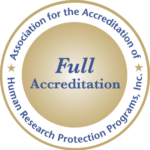- USC Investigator-Initiated Biomedical Protocol Template
- USC Social Behavioral and/or Secondary Research Protocol Template – This template should be used for any research dealing with any social behavioral study and/or social behavioral studies that contain secondary data.
- USC Medical Records and Specimens ONLY Protocol Template
- Cancer Center Protocol (Please go to the CISO website for Cancer studies)
- Research Repository Standard Operating Procedure (SOP) – Please use this protocol if you are developing a repository.
Informed Consent Form Guidance
- Informed Consent Form Instructions for Industry Sponsored, Cooperative Group, or External IRB Studies
The IRB accepts all industry sponsored consent forms with minimal change in content. Consent forms provided by an industry sponsor, cooperative group, or external IRB need to be modified only to include the addition of USC specific requirements, such as local contact information, cost/injury, payment language and removal of HIPAA. The iStar submission must include an electronic version of the study’s consent template and the consent version that includes all USC specific modifications for review. - Informed Consent Form Template
This document must be utilized for projects with Expedited or Full Committee review when there is no consent form from an industry sponsor or cooperative group.
Includes the essential elements of consent, instructions for use, the California Subjects Bill of Rights, conflict of interest requirements, considerations for long term specimen use and other institutional requirements. Read more about Informed Consent. - Assent Form Template – Ages 7-13
- Assent Form Template – Ages 14-17
- Pregnant Partner Consent Form
- Information Sheet for Exempt Studies
This document should be used for exempt research only.
It is the responsibility of the investigator or study sponsor to provide translation of an IRB approved Informed Consent Form (ICF). For studies that are greater than minimal risk (Full Board), one of the following is required a) A Certificate of Translation (CoT) by a professional certified translator/translation company, or b) documentation that the translation has undergone quality review by an entity such as an NIH Regulatory Support Center or the NIH Translation Unit. The translated ICF and appropriate documentation must be submitted as an amendment to the IRB. The translated consent form with IRB stamp will be uploaded into the iStar application. Investigators will receive email notification that the translated consent form is ready for use. A letter of IRB approval will be issued for the translated consent document. Minimal risk studies (Exempt or Expedited) do not require a CoT to be submitted.
USC offers preferred vendors for translation services and procurements should be done through Workday. Please reach out to Amy Mistry, Senior Procurement Specialist for assistance (213-821-5409).
Electronic Consent (eConsent)
In general, consent may be obtained electronically using DocuSign or REDCap. You may obtain HIPAA authorization electronically using DocuSign or REDCap for all studies, irrespective of risk level.
In the event your participant population cannot access DocuSign or another secure and encrypted online platform (e.g., REDCap), you may consider having participants take photographs of their signed consents using their cell phones and emailing them to the study team. Make sure you document the consent process so that anyone examining your approach will be able to see how consent was obtained in good faith.
For FDA regulated studies, REDCap may not be used to obtain consent or HIPAA authorization. USC has a Part 11 Compliant version of DocuSign that may be used for consent and HIPAA authorization for those studies.
When conducting consent electronically, participant identity verification is required.
21 CFR Part 11 Compliance
REDCap – REDCap is not Part 11 compliant for FDA regulated studies under any circumstance. Part 11 compliance requires many steps and validation on a per study basis that would not be feasible at this time.
For FDA regulated studies, the most appropriate way to handle eConsent is by using DocuSign.
- DocuSign – You may request a Part 11 Compliant version of DocuSign by going to the DocuSign wiki page and clicking on request additional roles. If the link is not accessible, please reach out to Jon Crumpler crumpler@usc.edu requesting a DocuSign Part 11 compliant account and his team will create a ticket on your behalf.
Please review the HRPP Informed Consent policies (Section 9.12) for more information.
The HIPAA authorization form must be a separate form per California Civil Code – Civ. Code 56.11(b).
The following can be found on the Office of Ethics and Compliance website:
HIPAA Privacy Rule: Forms and Other Resources
- HIPAA Research Authorization Forms (English and translations)
- You may use an interpreter or translator if an authorization form has not been translated in the language you are looking for. Add a note with the translated ID, date of conversation, and statement that the document was translated. For additional guidance and resources, please view this policy.
- Instructions for completing HIPAA Research Authorization
- Data Use Agreement for receipt of a limited data set (handled by USC Stevens)
- Request form for Decedents Protected Health Information
- Authorization to Use Protected Health Information for Education and Instruction
- Request for Protected Health Information for Preparatory Research Activities – Certification
- USC HIPAA Policy
- American Indian/Alaska Native Supplemental Form
- Cohort Enrollment Supplemental Form
- Department of Defense (DoD) Guidance
- Faculty Advisor Approval Form
- GDPR Addendum to Consent | for USC studies complying with GDPR. Learn more about the GDPR regulations governing data obtained from Europe/European Economic Area (EEA) or on behalf of organizations based in the EEA.
- Human Subject Data Classification Tool
- NIH Budget Form
- Research Advisory Panel of California
- California requires proposed research projects involving certain opioid, stimulant, and hallucinogenic drugs classified as Schedule I and Schedule II controlled substances to be pre-reviewed and authorized by the Research Advisory Panel of California in the Attorney General’s Office.
- Research Site Permission Template

